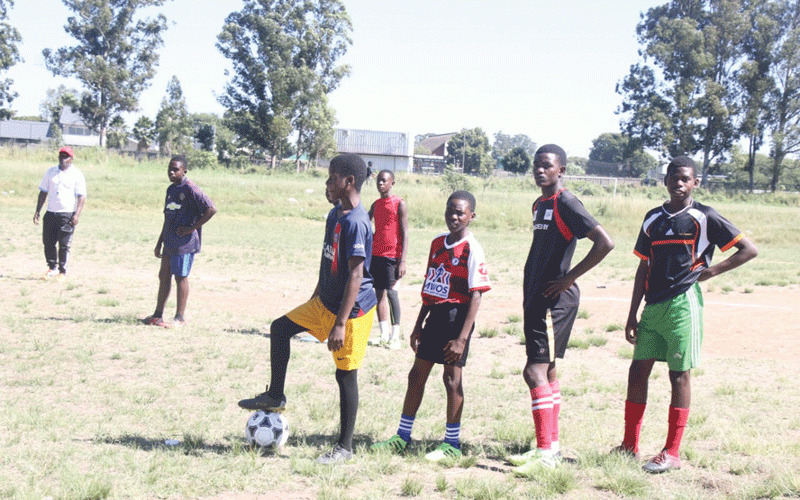
BY TIM MIDDLETON WHO would be a sports coach? Who would wish to be a sportsman? Who indeed would be a sports commentator? In the heat of the moment, they are required to make a comment in public and the first thing to come into their head is not always the wisest. As a result we, the spectators and viewers, are perhaps given the perfect opportunity to have a laugh.
Consider the following comments, stated publicly. “Apart from their goals, Norway haven’t scored” — really? There is a surprise! “Well, either side could win it, or it could be a draw” — again, there is no chance to argue with logic there! “I wouldn’t be surprised if this game went all the way to the finish” — it will be difficult to see how it could go any other way! “If history repeats itself, I should think we can expect the same thing again” — absolutely! “That would have been a goal if the goalkeeper hadn’t saved it” — really? “He’s one of those footballers whose brains are in his head” — no comment! This list of comments above that have all been made could easily go on but we must move on!
Of course, there are others who have come up with humorous comments by their inadvertent use of puns. “He dribbles a lot and the opposition don’t like it — you can see it all over their faces” — wipe that grin and dribble off your face! “He sliced the ball when he had it on a plate” — perfect! And then there was Ian Wright describing his captain’s public confession to alcoholism: “It took a lot of bottle for Tony to own up”. One commentator described what he saw by saying, “He had to cut back inside onto his left foot because he literally hasn’t got a right foot” — no, not “literally”, but we know what he means! Then another reporter was heard on radio saying that “Street hockey is great for kids. It’s energetic, competitive, and skillful. And best of all it keeps them off the street” — that is difficult!
And of course, some managers deliberately use humour. Tommy Docherty once said, “I’ve always said there’s a place for the press, but they haven’t dug it yet” while Ron Atkinson was quoted as saying that, “I never comment on referees and I’m not going to break the habit of a lifetime for that prat.” Finally, Ian Wright, the popular pundit, described what he saw most imaginatively in saying, “The referee was booking everyone. I thought he was filling in his lottery numbers”.
What we might say to all of this, at least, is that all the speakers above were game for a laugh. They firstly showed themselves to be game; they were willing and ready to make a potential fool of themselves. In their enthusiasm and keenness to play their part, they were opening themselves up to potential embarrassment and ridicule. They were game to involve themselves. That is tough!
They also showed themselves to be fair game. As one commentator said, even if he did mix up his metaphors, “If you can’t stand the heat in the dressing-room, get out of the kitchen.” If we are going to put ourselves ‘out there’ by making comments, we must expect to take any flak that may ensue. Whether we are sports stars or celebrities, we ourselves must realise that we are a reasonable target for jokes, criticism, attack (even if those people have never been sports stars, commentators or reporters). We make ourselves a sitting target so we are advised to adopt the old adage that, “Blessed are those who can laugh at themselves; they will have endless amusement”.
We might add though that in being game for a laugh they were also being game for life. There are several powerful lessons that coaches and parents can glean from these points, in helping their children develop in the world of sports. We need to encourage our youngsters to be game, to be willing to try new things, hard things, even at the risk of failing and losing and even potentially looking a fool. We can do that most easily by making not such a big deal of the winning or losing. They must be game to try, to train hard, to volunteer, to persevere. They must also be fair game.
We have said in a previous article that life is not a game so we need to take it seriously. However, we can equally say here that a game is not life and so we must learn not to take the game too seriously. Rather we must help our children be game and be fair game. As Peter Reid commented, “And we all know that in football if you stand still you go backwards…” Let us not stand still or go backwards with our youngsters; let us make sure they are game for a laugh. Game on! Play!
- Chamisa under fire over US$120K donation
- Mavhunga puts DeMbare into Chibuku quarterfinals
- Pension funds bet on Cabora Bassa oilfields
- Councils defy govt fire tender directive
Keep Reading
- Tim Middleton is a former international hockey player and headmaster, currently serving as the Executive Director of the Association of Trust Schools Email: [email protected]










